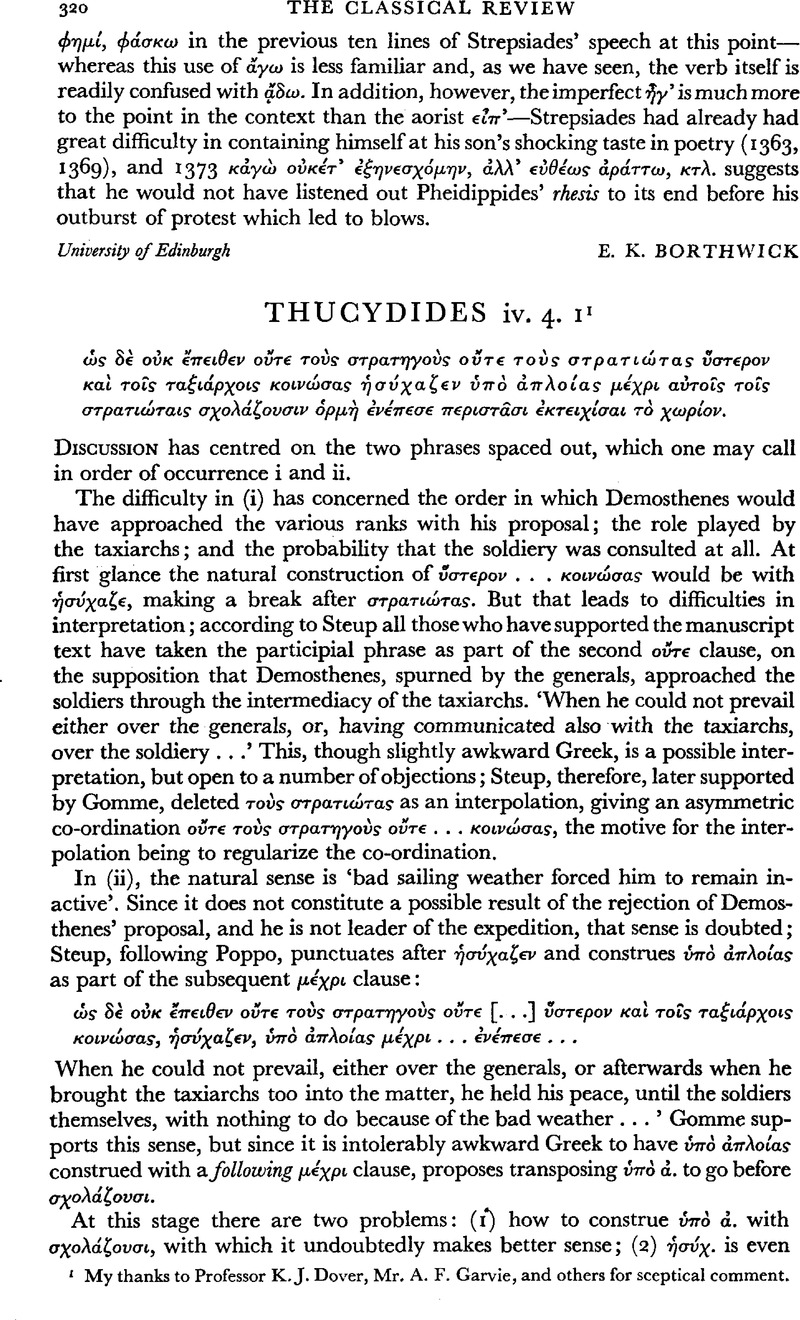No CrossRef data available.
Article contents
Thucydides iv. 4. 11
Published online by Cambridge University Press: 27 February 2009
Abstract

- Type
- Review Article
- Information
- Copyright
- Copyright © The Classical Association 1971
References
page 321 note 1 Hermes, xcv (1967), 378; q.v. for more detail of past discussion.
page 321 note 2 Kühner-Gerth3, ii. 1, 253 (b), where see Th. ii. 85. 6. Quinn's sense would have to be an instance of (c), but is essentially different from that too.
page 321 note 3 M. H. N. von Essen, Index Thucydideus.
page 321 note 4 The others are i. 137. 2; iii. 10. 4, 98. 1; viii. 58. 6.
page 321 note 5 But cf. i. 30. 3, 109. 4; ii. 22. 2, 31. 3; viii. 42. 3.
page 322 note 1 Such irrationalities of co-ordination are perhaps commoner with μ⋯ν … δ⋯ than with οὔτε but iii. 39. 3 παρ⋯δειγμα δ⋯ αὐτοῖς οὒτε αἱ τ⋯ν π⋯λας ξυμ φορα⋯ ⋯γ⋯νοντο … οὔτε ἠπαρο⋯σα ε ὐδμον⋯α παρὐσχεν ⋯κνον … seems a sufficiently close parallel.
page 322 note 2 As in vii. 60. 2?
page 322 note 3 3. 3 would suggest this.
page 322 note 4 So much so, it may be objected, that Thuc. would not have written ὑπ⋯ ⋯. αὐτοῖς as the opening of an apodosis. But αὐττοῖς may perhaps be displaced from the initial position by a desire to emphasize the element of chance which here for the second time in the form of the weather favours Demosthenes against the more conventional leaders. It is possible, agreeing neither entirely with Cornford (Thucydides Mythistoricus, 88 ff. nor with Gomme (iii. 488), to believe that (a) the element of chance is emphasized, at 3. 1 if nowhere else; (b) the purpose is not to belittle Cleon, (c) nor would it in fact belittle Demosthenes; (d) its actual effect is to deny to the demos and its conventional Dpresentatives the credit that is given to reemosthenes—since he has no official authority at this juncture, it is mere chance that opens the door to the Pylos triumph in face of the others' objections. Indeed 3. 1 ⋯ντιλεγ⋯ντων δ⋯, κατ⋯ τ⋯χην χειμών ⋯πιγεν⋯μενος would offer a useful parallel both for emphasis on chance and for a prepositional expression as the opening of a (virtual) apodosis: there we rather expect χειμών as the novel element in the story to stand initially.




